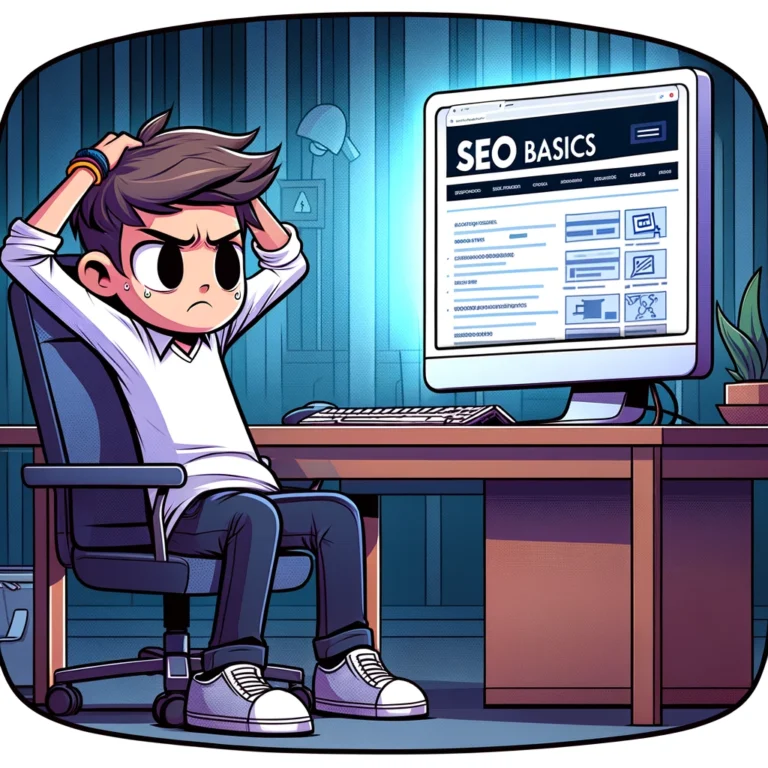Search Engine Optimization (SEO) is a critical component of digital marketing that affects the visibility and ranking of websites in search engine results. At the heart of SEO lies a deceptively simple concept: the keyword. Keywords are the linchpins that connect user queries to relevant content on the web. Understanding the importance of keywords and how to effectively use them can significantly enhance the visibility of any website.
What are Keywords?
Keywords are words or phrases that describe the content on your website. They are the terms that potential visitors enter into search engines when they’re looking for information, products, or services. In essence, keywords act as the bridge between what people are searching for and the content you provide that matches their interests.
Why are Keywords Important?
Keywords are fundamental to the search process. They help search engines match a user’s search with relevant content. The better your content aligns with these keywords, the higher your site is likely to rank in search results. Here’s why keywords are crucial for effective SEO:
1. Visibility and Ranking
Keywords help determine where your site ranks on search engine results pages (SERPs). When your site contains the same keywords that users are searching for, it increases the chances that your site will appear on the first page of search results, thereby increasing visibility.
2. Traffic and Engagement
Well-chosen keywords can drive more traffic to your site. By targeting keywords that are relevant to your audience, you increase the likelihood of attracting visitors who are interested in what you have to offer, which can lead to increased engagement and conversions.
3. Understanding Audience Needs
Keywords can provide insights into the needs and preferences of your target audience. By analyzing popular keywords, you can understand what your potential customers are looking for and tailor your content to meet those needs.
Components of Keyword Optimization
To leverage keywords effectively, you need to understand the different components of keyword optimization:
1. Keyword Research
Keyword research is the process of finding the right keywords that your target audience is using to search for your products or services. Tools like Google Keyword Planner, SEMrush, and Ahrefs can help identify these keywords based on factors like search volume, competition, and relevance.
2. Keyword Relevance
Choosing keywords that are relevant to the content on your page is crucial. Relevance ensures that the traffic driven to your site is quality traffic, i.e., visitors who are actually interested in what you offer.
3. Keyword Placement
Once you have identified your keywords, placing them strategically throughout your content is key. Common places to insert keywords include the title tag, meta descriptions, headers, and throughout the body text. However, it’s important to use them naturally to avoid ‘keyword stuffing’ which can negatively impact your SEO.
4. Long-tail Keywords
Long-tail keywords are longer, more specific phrases that visitors are likely to use when they’re closer to a point-of-purchase or when they’re using voice search. They’re often less competitive than generic keywords and can attract more qualified traffic.
5. Monitoring and Updating Keywords
SEO is not a set-it-and-forget-it process. To maintain and improve rankings, you must continuously monitor the performance of your keywords and update them in response to changes in search trends and user behavior.
Best Practices for Keyword Usage
To make the most of keywords in SEO, follow these best practices:
- Avoid Over-Optimization: Overusing keywords can lead to penalties from search engines. Ensure your use of keywords feels natural and adds value to the content.
- Update Regularly: Keyword trends can change rapidly. Regularly updating your keyword strategy can keep you ahead of the competition.
- Focus on Quality Content: Ultimately, the quality of your content is what will retain visitors. High-quality, relevant content optimized with the right keywords enhances the user experience and boosts SEO.
Keywords are a fundamental aspect of SEO that cannot be overlooked. They play a crucial role in improving a website’s visibility, driving traffic, and understanding audience preferences. By strategically researching, placing, and managing keywords, you can significantly enhance your SEO efforts and achieve better rankings in SERPs.

Integrating Keywords into Content Strategy
Beyond the technical aspects of keyword research and optimization, integrating keywords into your content strategy is pivotal for SEO success. Here’s how you can seamlessly incorporate keywords into a well-rounded content strategy:
1. Content Mapping
Content mapping involves planning your content to align with the needs and journey stages of your target audience. By identifying the keywords that are relevant at different stages—from awareness to consideration to decision—you can create content that not only ranks well but also moves potential customers through your sales funnel.
2. Content Diversification
Don’t just focus on one type of content. Utilize a variety of content forms such as blogs, infographics, videos, and podcasts. This approach allows you to embed keywords naturally across different media, catering to various user preferences and increasing the avenues through which users can find your site.
3. Contextual Keyword Integration
Using keywords contextually within your content improves its relevance and readability. Instead of just inserting keywords, integrate them in a way that adds value and enhances the understanding of the topic for the reader. This approach aids in maintaining the flow and quality of content, which are both crucial for user engagement and SEO.
User Intent and Keyword Optimization
Understanding user intent is essential when selecting keywords. User intent refers to what the user really seeks when typing a query into a search engine. Here are types of intents to consider:
1. Informational Intent
These are searches conducted to answer questions or gather information. Keywords related to informational intent typically start with “how to,” “what is,” “why do,” etc. Crafting content that directly answers these queries can dramatically improve your site’s relevance and authority.
2. Navigational Intent
This intent refers to searches made to locate a specific website or page. Keywords in this category are often brand-specific. For such keywords, ensuring that your site is optimized for your brand name or specific offerings can capture this direct traffic efficiently.
3. Transactional Intent
These searches indicate a readiness to buy or engage in a transaction. Keywords often include terms like “buy,” “deal,” “discount,” or specific product names. Pages optimized for transactional intent should be clear, persuasive, and have strong calls-to-action.
4. Local SEO
For businesses with a physical location or local service area, local SEO is critical. Keywords that include location-specific phrases can drive local traffic and are often less competitive. Make sure to incorporate city names, neighborhood names, or nearby landmarks in your keywords for enhanced local visibility.
Measuring Keyword Success
Monitoring and analyzing the success of your keywords is as important as selecting and using them. Here are some metrics to keep track of:
1. Search Engine Rankings
Regularly check where your pages rank for specific keywords. This will help you understand the effectiveness of your SEO strategies and identify areas for improvement.
2. Website Traffic
Use analytics tools to track how much traffic each keyword brings to your site. A drop in traffic might suggest the need to reassess certain keywords or adjust your content.
3. Conversion Rates
It’s not just about traffic; it’s about action. Monitor how many visitors converted into customers or leads from keyword-driven pages. This metric will help you determine the ROI of your keyword choices.
Conclusion
Keywords are more than just SEO jargon; they are the essence of your content’s visibility online. By deeply understanding their importance, conducting thorough research, and continually refining your approach, you can effectively enhance your website’s SEO performance. Remember, the goal is to ensure that your content not only attracts visitors but also meets their needs and encourages them to take action, thereby fostering a successful online presence.
References
- Google Analytics: https://analytics.google.com/
- Moz Keyword Explorer: https://moz.com/explorer



